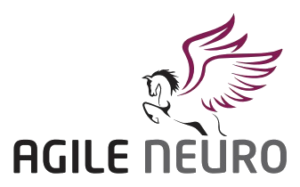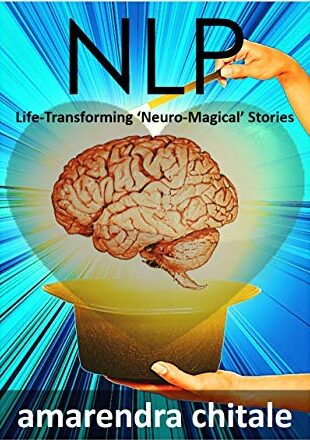
I am not a smoker. But I was once offered a cigarette by a friend. I refused to take it the first time. But then I asked him, why do you smoke? He gave me 3 reasons why. One, he had a lot of tension in life due to his work and smoking helps in easing it. Two, it helps him deal with overwhelming situations at home and work. Three, smoking helps him in cleaning his biological system every morning because constipation was his old ‘hard to be with’ friend who was unwilling to leave. And then he said, now it has become a habit. I thought for a moment, except for the 3 rd point, I probably have the other two issues as well. Why don’t I try just one cigarette and see how it goes, I thought! And then I tried one. Went into the horrible state of coughing and suffocation with the first puff. With that, I couldn’t finish off that cigarette and gave it back to my friends.
That night before going to sleep, was wondering (from the psychology standpoint) what needs to happen for a non-smoker to be able to try smoking. I went back to the entire event I witnessed that day and thought about it point by point. Who offered me a cigarette? A friend! How do I choose a friend? Obviously not consciously, but we all run an ‘unconscious process’ that leads us to ‘connect’ with a person who is a stranger or acquaintance at that time but then becomes a friend in due course. One aspect in that unconscious process is judging the credibility of the person. We all have our definitions of what is appropriate and what is not. We all know what is right for us and what is not. We all have our sense of morality. Anyone matching that is a credible person for us. The ‘Ethos’ should match. Now you can link Ethos with morality, ethics, value system, beliefs, vibes, capabilities, competencies etc. This needs to match. I am sure you will call your good friends as highly credible people. Maybe not ‘highly’ but obviously they are right up there in your eyes, may not be in anyone else’s eyes.
Then I thought, would I accept a cigarette from a stranger, or for that matter even an acquaintance? I really doubt that. Forget accepting a cigarette from acquaintances, I won’t take even a suggestion seriously if it would come from them. Obviously, I realised there is need for rapport and a good emotional connect with the other person to accept any suggestion. I would term that as ‘Pathos’ which talks of intimacy, rapport and emotional connect. We all are emotionally connected with our good friends. So, that makes our friends credible and emotionally connected. You need Ethos and Pathos in order to trust a person. I came down to that conclusion.
But I thought there was a missing link somewhere. It is not only about credible people with whom you have great rapport who may talk to you and you get influenced by everything they say. How are you really influenced? Now, we listen to a lot of management/spiritual gurus, politicians, celebrities and specialists from various domains and we are influenced by a lot of them. Yes, they may be credible in your eyes. But we don’t necessarily have any emotional connect with them. It could well be a one-sided connect though. That is agreeable. So, there must be one more ingredient which makes us trust someone or get influenced by them. Then I remembered, I had asked a question to my friends. The question was, “Why do you smoke”. To which, my friend had given ‘his logic’ regarding how smoking helps him. Clearly, I related my situation with his logic, which meant logically he made sense. He has pressure in life, so do I. He has overwhelming situations in his life, so do I.
Somewhere, I bought his ‘logic’ as I was going through the same situation. And the way he put things, it paced me to accept his offer. I think this is where I introduce ‘Logos’ to you. Logos is logic. Logic too connects people together, but everyone is not on the same page logically as well. You would think, this is so logical and why don’t people understand such a simple thing but that’s how politics shapes up doesn’t it? People have various point of views supported by their own logical system and hence their views become concrete reality for them.
So, there you are! Ethos, Pathos and Logos! The pillars of being Trustworthy. You will realize, if you remove anything of these pillars and Trust comes crashing down. Take your spouse for example. You married your spouse precisely because of these pillars. Your spouse is credible in your eyes because s/he is of good ‘character’ and/or ‘competency’ and is dependable for sure. By character we mean ‘Integrity’ and ‘Intent’. You can figure out the competency part. That is the Ethos part. You also have an Emotional Connect or Intimacy which is Pathos. And obviously, both of you match your wavelengths live life with almost same logic and ideology which reflects in the way you both take decisions as well. That is Logos for you. If you take any of these out of the equation and you will have a rocky relationship. Which is why I am not so much in favor of matching the horoscopes before marriage because it can so easily mess up with the Ethos part. Just live your life together and take life as it comes.
Well, basically Ethos, Pathos and Logos is a Greek concept which is more than 2500 years old. We always knew about it, but it was never taught in schools or colleges. In fact, this is something which Business Management students need to know. You need to trust people before you can do business with them. People buy trust before they buy the product. Speaking about Trust in Leadership domain, if you want your people to Trust you, you will need Ethos, Pathos and Logos for sure. How does it work in Leadership arena? Credibility means, you should be good at your work and be able to show the results. Be a hands-on person and be a Master at your game. Your employees see you and learn. Doesn’t it work the same way in parenting? I’ve always believed in the fact that you cannot be a good leader and a bad parent or a bad leader and a good parent. Your kids are looking at you, learn from you and copy you. Then comes the Pathos part where it is extremely important you are an approachable and preferably ‘All areas of life person’ for your team. It is so important that you share an occasional cup of ‘Cutting Chai’ with them and talk things which are not related to work. The best way of building Rapport is talking to each member of your team about their area of interest. Someone might me interested in cricket, then talk cricket.
Maybe music, dance, movies, places of travel etc. with other team members. You will see amazing results when you are able to connect with each team member by being behaviorally flexible. And clearly, if you give illogical suggestions when the team comes to you for advice, they are not going to trust you for sure. That’s the Logos part. I once had an HR Manager (when I was working with a Software Company) who did not know how to search an email in her Outlook. 15 years’ experience and she doesn’t know this. I would blame all her Managers till date who couldn’t teach her this part. That’s another bottom-line intention each Leader should have; empower each team member to attain excellence. That is also when they will not only trust you but remember you their whole life.
On the Logos part, if any Team member (or child) comes to you for advice or if you are giving a constructive feedback, you must back your feedback/advice with at least 3 reasons why they should change their way of doing things. First would be, how you learnt what was
the correct way and how you have delivered results learning the new way (Credibility). Second would be, how logically things would work by giving them a ‘change roadmap’ (Logos). Third would be, how beneficial it would be to adopt the new way so that they can achieve their (personal) goals (Connect-Pathos). This is quite basic and effective, but we often don’t pay attention to how people get influenced, and before they get influenced, they need to trust first. Feel free to connect with me to share your experiences in this area.









